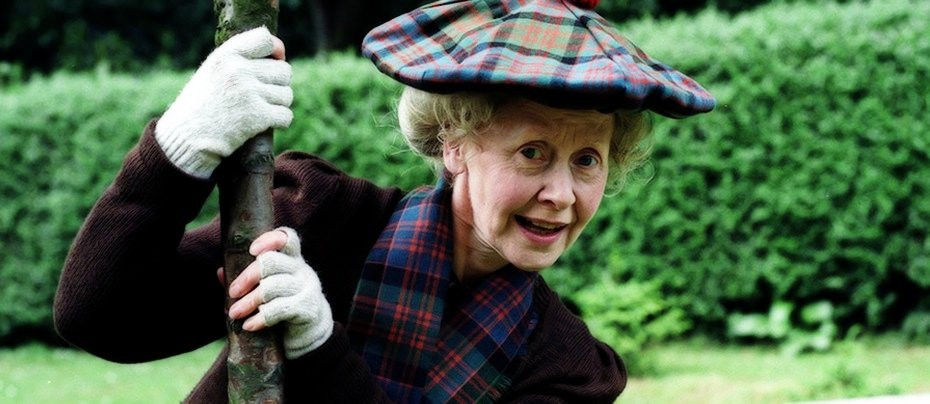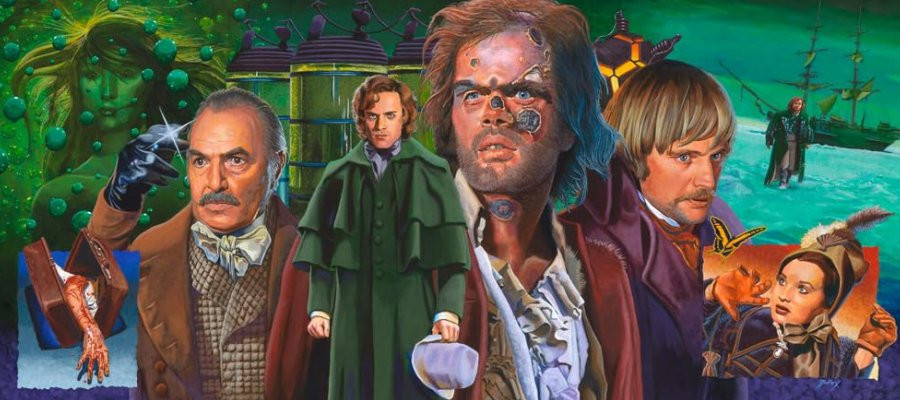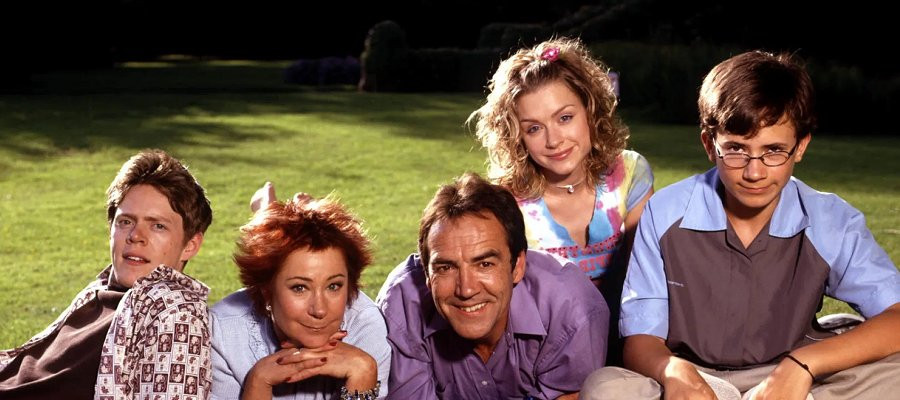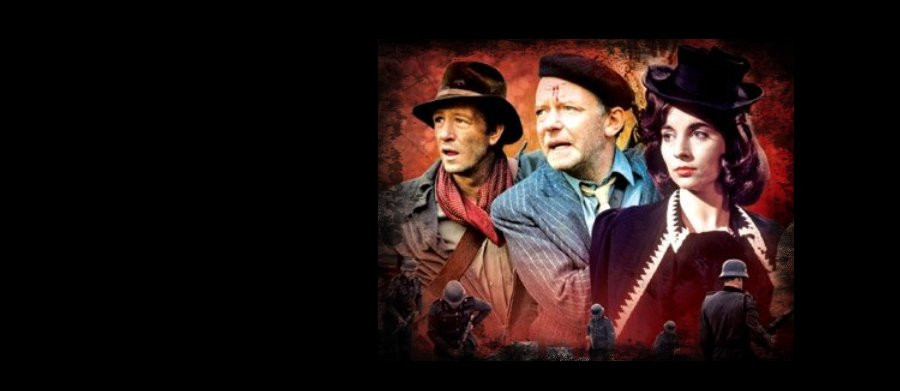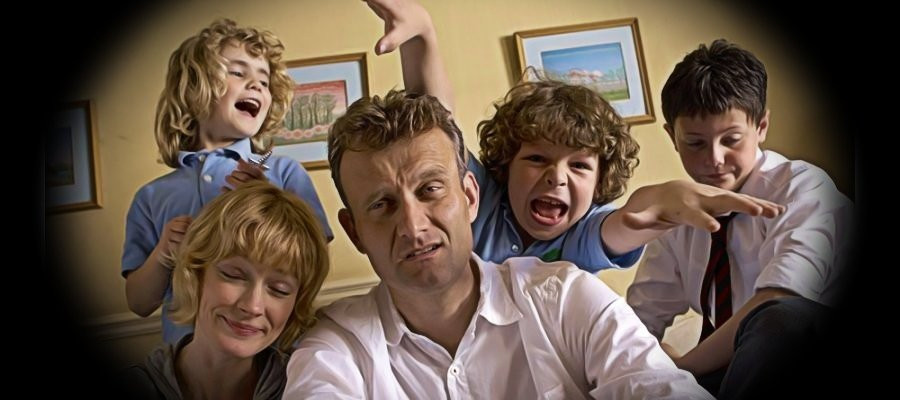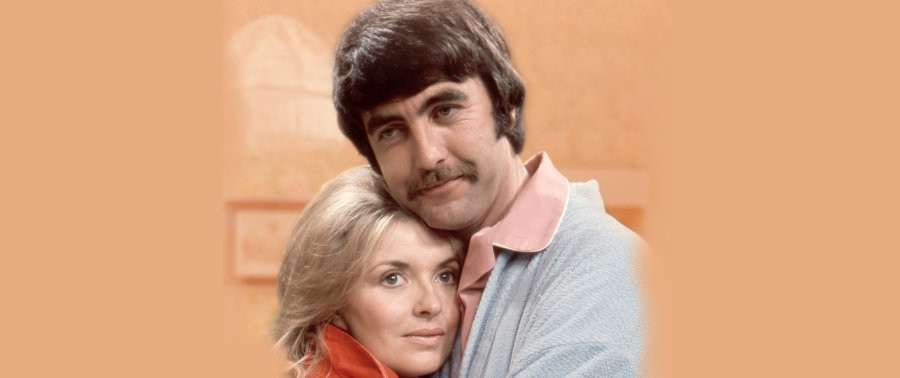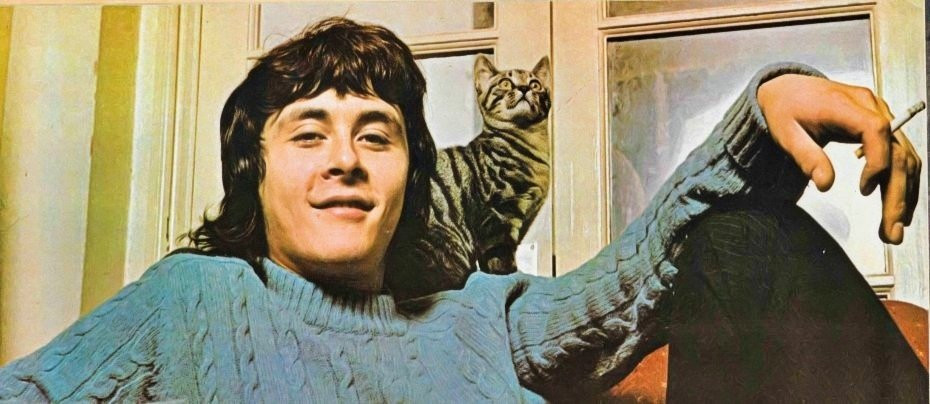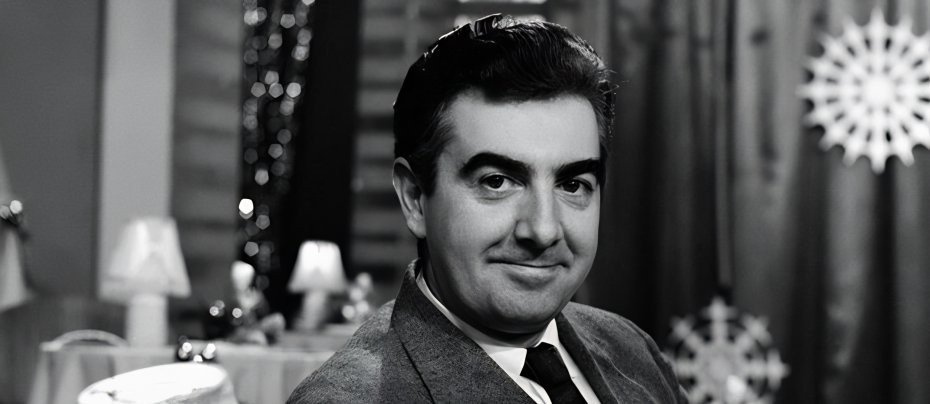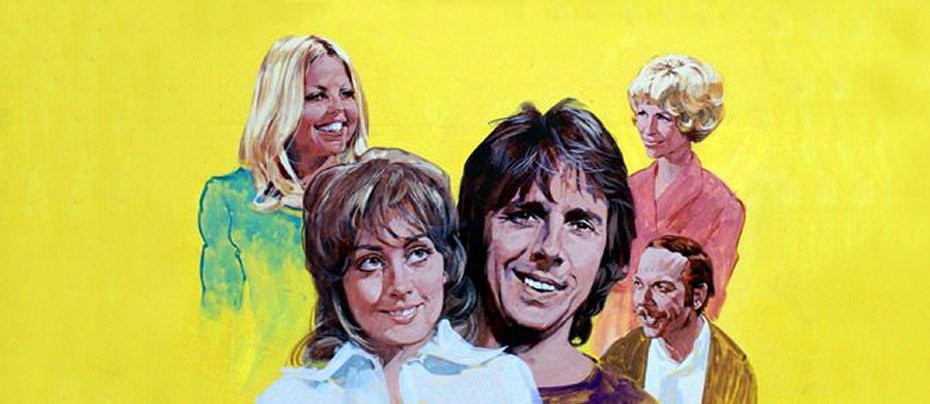
Man About the House (Film)
Review by Brian Slade
The 1970s trend of making movie versions of successful British sitcoms was a fruitful one at the box office, but movie companies normally opted for comedies that had built a loyal audience before transferring to the big screen. In 1974, for their final such venture Hammer Films decided to take a punt on a show that had only had one series but had captured the affections of the viewing public – the hugely successful Man About the House.
For those who didn’t catch the show, Man About the House was the brainchild of writing duo Johnnie Mortimer and Brian Cooke. Their previous attempt at sitcom, Alcock and Gander, had bombed and their careers seemed to hang on making a success of their next project. They were smart enough to take the best of Alcock and Gander – Brian Murphy and Richard O’Sullivan – into their next venture, and with some tighter writing and some excellent additional cast members, they hit success that would secure their careers as a top comedy-writing double act.

The show centred on Robin Tripp (O’Sullivan), a young man who while he waited for his career as a chef to take off was intent on enjoying life in the 1970s. After passing out in the bathroom at a party, he awoke to find himself agreeing to become a flatmate to Chrissy (Paula Wilcox) and Jo (Sally Thomsett). Despite his best efforts, Robin was thwarted permanently in his attempts to woo Chrissy, a strong and independent woman who was seemingly content to keep Robin at arm’s length.
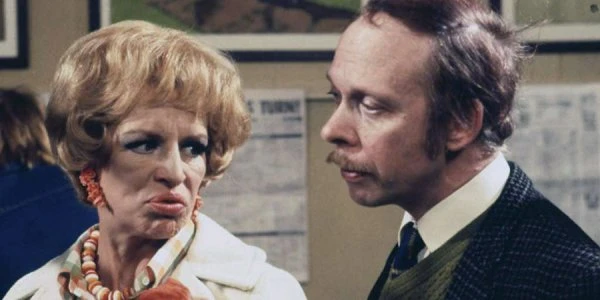
Of course, as well as the chemistry of the leading trio, the show became a hit in no small part due to the couple downstairs – landlords George and Mildred Roper. George (Murphy) was a hen-pecked conservative who would have no goings on in his building – but that seemed to also apply to his own marriage, leaving Mildred (Yootha Joyce) to pine for satisfaction.
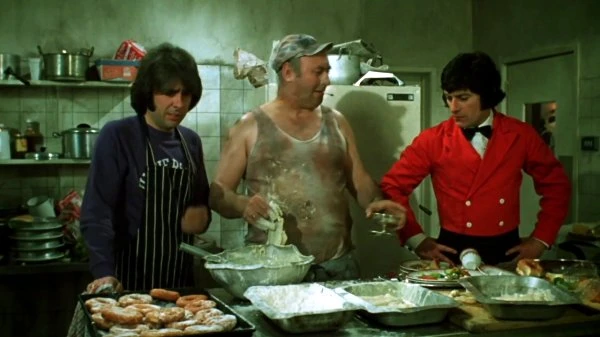
In the movie version, Robin has a job in a kitchen. It’s one that is a million miles away from his culinary aspirations as the head chef, played by Bill Maynard, coughs and splutters his way around the filthy kitchen, only removing his cigarette from his mouth to suggest adding curry powder to vanilla ice cream to convince customers that it is chocolate. The suggestion from Robin that seasoning should be added to a dish gets a somewhat dated retort questioning Robin’s masculinity.
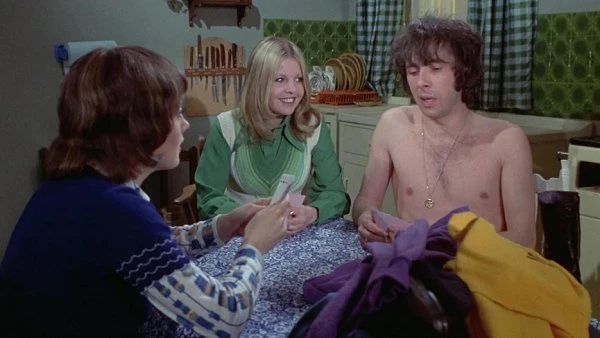
One bit of life experience Robin picks up in the kitchen is the game of strip poker, something he takes home to use in his attempts to become more than flatmates with Chrissy. It is of course a plan that fails due to her exceptional card skills, but Robin’s attempts to win Chrissy along with her continual refusals play into the principal story of the film as they volunteer one another as members of a residents association.
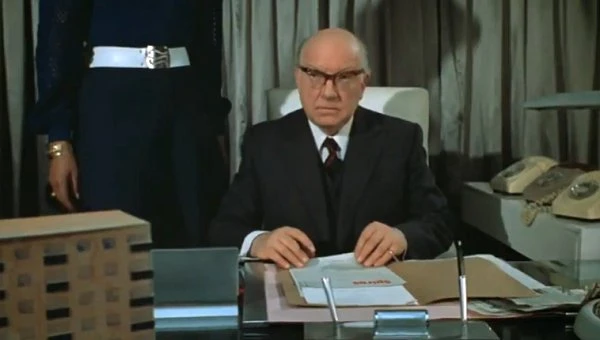
The film’s main plot centres around an unscrupulous building company, headed by Dad’s Army’s Arthur Lowe, that plans to demolish the homes in Myddleton Terrace. It’s a horrifying thought to all…well, almost all. George of course sees the chance to make some money, so while Mildred and the trio of housemates upstairs are attempting to thwart the plans by hook or by crook, George is determined that they go through.
Morris Pluthero (Peter Cellier) is the go between whose job it is to secure all the tenants’ agreement to selling up their homes. The Ropers building is eventually the one remaining home whose owners will not commit to selling. Pluthero, a snivelling subservient weasel to Lowe’s company head, Spiros, attempts to convince Chrissy over dinner to accept the company’s offer. He has, however, agreed to meet her at the restaurant where Robin works. By now, Chrissy and Robin are at the head of the residents committee and while Pluthero tries to sweet-talk Chrissy into signing, Robin is busy adding laxatives to the dishes he and Maynard’s now reformed chef send out.

The climax of the movie is a rush to a television studio, where Pluthero has been forced to publicly concede defeat to keep Spiros from bad PR. George is determined to get their first with a signed contract that will allow the project to go ahead. Robin, Chrissy, Mildred and Jo are trying to get there to prevent such an outcome, and of course, good triumphs over evil.
The movie version is, as many of the sitcom adaptations, a little more risky than the television version from which it spawned. Fifty years on, elements of race and sexuality rear their head, but only minimally and with far less inappropriateness than other adaptations of the time.
As with the television show, George and Mildred somewhat steal the show. George is constantly emasculated by Mildred, seemingly for good reason, and the double-entendres while not flooding the script are certainly effective. We discover that George was round the boozer collecting money on the empties on the Ropers’ wedding day, and on the subject of their lack of children, Mildred angrily reveals, ‘you can’t hit the jackpot if you don’t put money in the machine.’

Man About the House has an army of familiar faces scattered across it beyond the main cast. Jack Smethurst, Johnny Briggs, Bill Pertwee and Melvyn Hayes all make an appearance, as bizarrely does Spike Milligan. In the hectic dash to the studio, both George and the following quartet stop at Spike’s dressing room to ask for directions. Spike is appropriately Spike, zany enough to make one wonder whether any of his lines are scripted as he karate chops O’Sullivan after suggesting the best route to studio three is to go left and then to Stoke-on-Trent before asking someone again.
Of the many sitcom adaptations, Man About the House is one of the more enjoyable. O’Sullivan’s charm never descends into lechery, Wilcox and Thomsett balance nicely as a powerful independent woman and her slightly naïve pal and of course the incredible chemistry of Murphy and Joyce are the most captivating even on the big screen. It’s a welcome addition to what became a huge success in the Tripp/Roper collection of shows.
Published on November 9th, 2023. Written by Brian Slade for Television Heaven.


